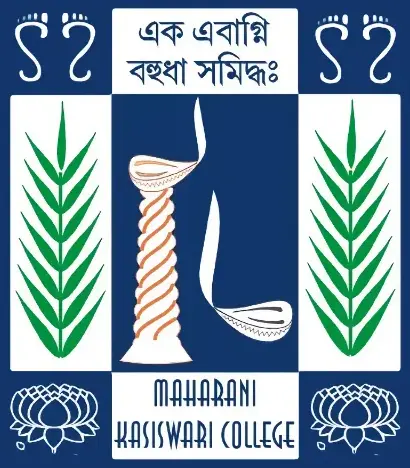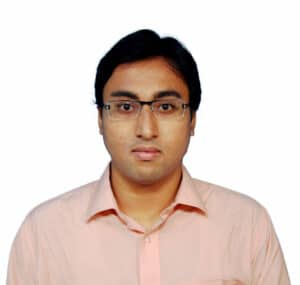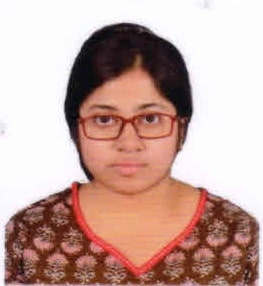Departmental Profile
The Department of Computer Science launched its journey in 2000 as General subject and marched ahead for pretty long time as General subject only. It obtained approval for introducing as Honours subject in 2018. There are at present 30 sanctioned seats for Honours. There is one full time teacher, and five State Aided College Teachers (SACT) in the department. Besides teaching, the Department organizes class wise seminar, debate and prepares students for Quiz competition and Group discussion, so that they can keep pace with the time. The students can express their views independently through their writing in the wall Magazine and teachers guide them properly in this regard. Above all, the faculty members are always ready to render all possible assistance and guidance to students within and outside the campus as and when required. Consequently, students get through the final examination with flying colours every year and go for further higher studies.
SWOC
Strength
Dedicated and Student-Centric Faculty Members
- Strong Academic Background
Faculty members possess advanced degrees and specialized knowledge in their fields and continuously upgrading their skill sets. - Active Research Involvement
Some faculty members are engaged in ongoing research activities, contributing to academic advancements in their respective fields. Students benefit from exposure to cutting-edge developments and gain inspiration for pursuing research-oriented careers. - University-Level Roles
All thefaculty members actively participate as examiners and paper setters for university examinations. Ensures students receive guidance aligned with academic standards and expectations. - Continuous Skill Development
Faculty members regularly update their skills to keep up with the latest advancements in technology and pedagogy. Equips students with knowledge of state-of-the-art practices and technologies, enhancing their employability. - Professional Upskilling through Workshops
- Prof. Arpita Sanyal Bhaduri attended an Orientation Program for Research Capability (OPRC) to enhance her teaching methodology.
- Mr. Sourav Malakar: Attended numerous workshops on machine learning, cloud computing, cybersecurity, solar forecasting, and computational intelligence from 2018–2022.His work in these fields has brought diverse knowledge and practical insights into emerging technologies to classroom discussions.
- Ms Aparajita Datta has attended international conferences such as: CICBA 2018 , CVIP 2022 and DLAI 2024.She has also participated in DSMLRS (Data Science & Machine Learning for Remote Sensing workshop. This has encouraged interdisciplinary approaches, such as the integration of data science, remote sensing, and machine learning, evident in workshops like).
Teaching Methodology in the Department of Computer Science
- Faculty members employ a blend of traditional and modern teaching methods, including chalk-and-talk sessions for foundational concepts, ICT-enabled tools for interactive learning, and hands-on lab sessions to bridge theory with practice. Emphasis is placed on group projects, collaborative learning, and open-book assignments to encourage critical thinking and problem-solving skills.
Regular Remedial Classes
- Faculty members conduct regular remedial classes to address the specific learning needs of students who require additional guidance. These sessions focus on revisiting challenging topics, clarifying doubts, and reinforcing core concepts through personalized attention.
Infrastructural Facilities of the Department
- Laboratories:
- Two well-maintained laboratories: Hardware Lab and Software Lab.
- Equipped with a sufficient number of modern computers aligned with the student intake capacity.
- Continuous internet connectivity in labs for seamless research and project work.
- Availability of ICT tools for advanced learning and practical sessions.
- Departmental Library:
- Contains a diverse collection of books and resources for academic reference and research.
- Regular updates to include the latest editions and subject-specific content.
- Hardware Resources:
- Specialized hardware setups for conducting practicals aligned with the CBCS (Choice-Based Credit System) syllabus.
- High-performance systems for resource-intensive tasks and real-world simulations.
- Seminar Facilities:
- Seminar room equipped with audio-visual aids for workshops, guest lectures, and knowledge-sharing sessions.
- Collaborative Learning Spaces:
- Dedicated spaces for group studies, collaborative assignments, and project discussions.
- Question Bank Database:
- A regularly updated repository of questions for exams, assisting students in systematic preparation.
- Dedicated Printer Facility:
- Printer access for both students and teachers to facilitate academic and project work.
- Whiteboard and Marker-Based Classrooms:
- Dust-free teaching environments that support traditional and interactive learning methodologies.
- Adaptability for University Examinations:
- Equipped with infrastructure for hosting university-level examinations and assessments.
- Research and Skill Development Support:
- ICT-enabled learning environment with advanced software tools for research projects and practical assignments.
Weakness
Shared Laboratory Resources:
- Laboratory is shared with other departments (e.g., B.Com and Geography), which may limit accessibility.
Insufficient Assistant Professor:
- The department lacks an adequate number of assistant professors .
Improvement of Laboratory Infrastructure:
- Both software and hardware infrastructure need improvement.
Inadequate Library Resources:
- More books are needed for the departmental library.
Placement and Industry Engagement:
- There is a need to focus more on on-campus placement opportunities.Academic partnerships with other institutions and industries are underdeveloped.
Vacant Seats in Admissions:
- Several approved seats (for 1st-year admissions) remain unfilled.
Delay in information communication:
- Maharani Kasiswari College is associated with the University of Calcutta and is required to adhere to the curriculum prescribed by the University. However, the detailed instructions for newly approved syllabi are often received late, limiting the scope for timely curriculum planning and delivery.
Opportunities
Opportunities to Work on Real-Time Problems
- Students in the department have access to state-of-the-art topics and real-world problems. This exposure includes working on advanced subjects such as time series analysis, remote sensing applications, and machine learning. These opportunities allow students to apply theoretical knowledge to practical scenarios, enhancing their problem-solving skills and preparing them for modern industry demands. By engaging with these areas, students also gain experience with cutting-edge tools and methodologies, making them competitive in both research and professional domains.
Guidance for Higher Studies
- The department provides consistent mentorship and guidance to students aspiring for higher education. Faculty members encourage students to pursue advanced degrees and assist them in identifying the best programs, universities, and scholarships. Students receive help in preparing for entrance examinations, writing effective statements of purpose, and navigating the admission process. This proactive approach helps students build confidence and ensures they are well-prepared for the next phase of their academic journey.
Preparation for Off-Campus Interviews
- Students are equipped with the skills needed to succeed in off-campus interviews. The department organizes sessions to enhance their resumes, improve their communication skills, and develop technical expertise relevant to industry requirements. Regular updates and information regarding job opportunities are shared with students, enabling them to stay informed about potential career options. This systematic preparation ensures that students are ready to compete for roles in a wide range of industries.
Encouragement to Participate in Extracurricular Activities
- The department motivates students to actively engage in both on-campus and off-campus events. This includes participation in national-level workshops, seminars, and conferences, which allow students to expand their knowledge, network with experts, and gain exposure to the latest advancements in their fields. By encouraging involvement in such activities, the department fosters holistic development and enables students to develop essential soft skills like teamwork, leadership, and adaptability.
Maintaining Alumni Connections
- A strong and active alumni network is maintained, providing current students with valuable insights into industry expectations and career preparation strategies. Alumni often share their experiences, guidance, and job opportunities with students, acting as mentors and role models. This interaction helps students understand the practical challenges of professional life and how to prepare for them effectively. The alumni network also serves as a bridge to potential internships, projects, and job opportunities.
Earn While You Learn is Appreciated
- The department supports the concept of “Earn While You Learn,” which allows students to gain practical experience and financial independence while pursuing their education. This initiative includes opportunities like internships, part-time projects, freelance work, and collaboration on industry-sponsored assignments. By engaging in such activities, students can apply their academic knowledge in real-world scenarios, enhance their resumes, and develop critical professional skills.
Challenges
Lack of Motivation for Higher Studies
- Many students are discouraged from pursuing higher studies due to limited job opportunities after graduation. Without strong prospects in terms of employability or career advancement post-master’s or PhD, students often prefer to focus on immediate job placements rather than investing time and resources in further education. This challenge calls for improved career counseling and showcasing successful examples of alumni who have pursued higher studies and achieved professional success.
Limited Sponsored and Financed Projects
- With the department’s small student body, sponsored or financed projects are not widely encouraged or recognized. This lack of support restricts students’ exposure to working on live, industry-grade projects, which are essential for gaining practical skills and building a robust portfolio. The absence of such opportunities not only impacts their learning but also puts them at a disadvantage compared to students from other institutions with well-supported project initiatives.
Reluctance to Participate in Fee-Based Programs
- Many students avoid participating in workshops, seminars, or other events if they involve even minimal registration fees. This attitude limits their exposure to professional development activities and networking opportunities. Such events often provide invaluable learning experiences, certifications, and connections, which are crucial for career growth. This reluctance poses a challenge for the department in organizing value-added programs and fostering a proactive, participatory culture among students.
Limited Opportunities in Core Companies
- Despite having sufficient knowledge and coding skills, B.Sc. Computer Science students are not given equal recognition as their B.Tech counterparts when applying for core technical positions such as Assistant Engineer roles. This lack of equivalence in degree recognition creates an unfair barrier to opportunities, discouraging students and limiting their professional growth despite their competencies.
Disruption of Classes Due to Faculty Responsibilities
- The faculty members’ involvement in numerous university duties, such as examination responsibilities, impacts the continuity of regular classes. This inconsistency in the academic schedule disrupts students’ learning flow, making it difficult for them to maintain a steady academic pace. It also reduces the availability of faculty for mentoring, doubt-clearing sessions, and extracurricular academic guidance.
Addressing these challenges requires strategic planning, improved student engagement, and institutional reforms.
Evaluative Report
Head of the Department
Faculty Members
Departmental Notice Board
-
August 21, 2023
-
September 30, 2021







